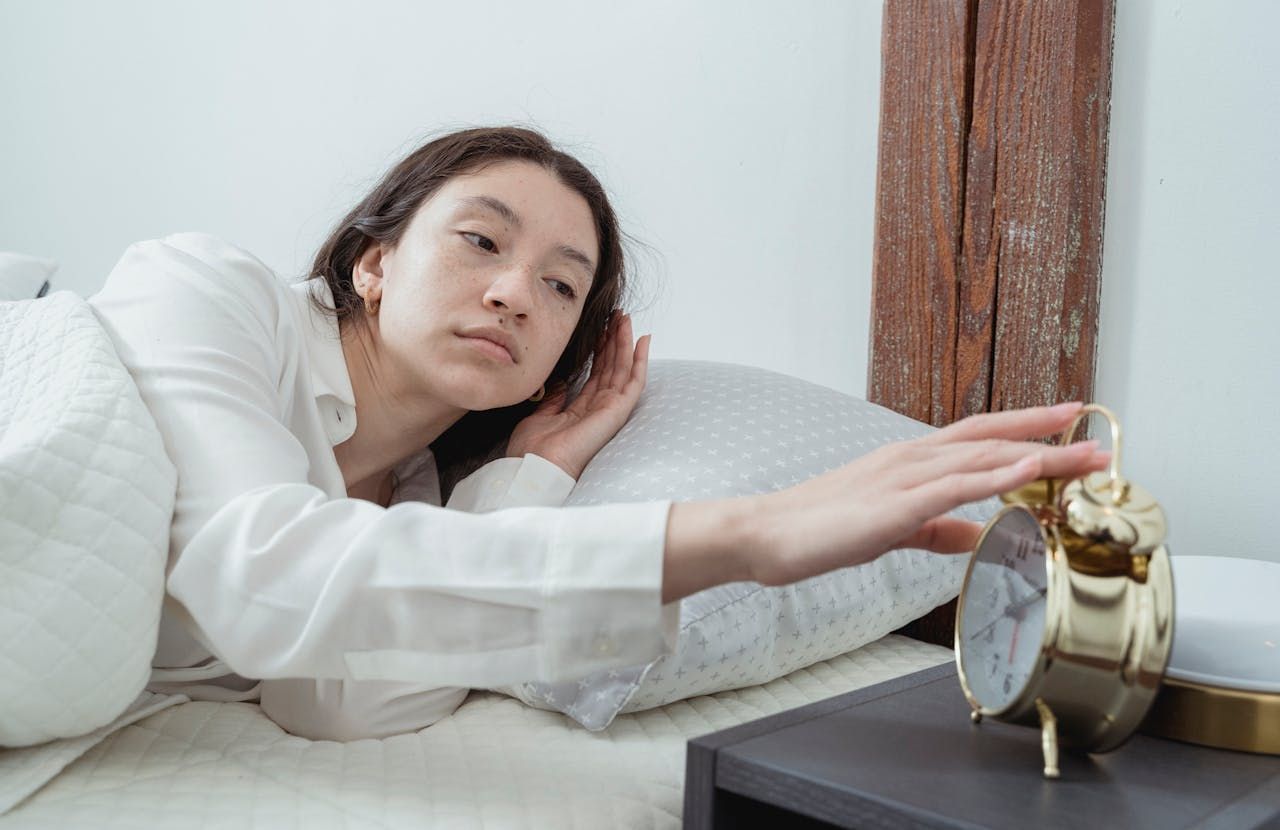Originally posted on February 10, 2025, updated for World Sleep Day 2025.
In honour of World Sleep Day, let's revisit an important conversation on sleep and its impact on mental health. A perfect reminder that sleep plays an essential role in overall well-being.
World Sleep Day 2025
Did you know that more than 45% of people around the globe struggle with sleep problems? It seems like sleep has become a luxury that many of us can’t afford anymore.
World Sleep Day annual event, put together by the World Sleep Society, highlights just how crucial quality sleep is and addresses various sleep-related issues. For 2025, it is scheduled for Friday, March 14, 2025 with the theme "Make Sleep Health a Priority."
In addition to raising awareness, activities like exhibitions and community events are designed to encourage everyone to prioritize their sleep.
Are You Getting Enough Sleep?
Medical experts suggest that adults should aim for 7 to 8 hours of sleep each night. However, research indicates that many adults actually get less than five hours of sleep per night.
What many people fail to recognize is that sleep deprivation can lead to serious consequences, including a weakened immune system, difficulty concentrating, and an increased risk of mental health issues.
It's essential to rethink our approach to sleep, treating it as a vital and scheduled part of our lives rather than a luxury we indulge in only after everything else is done.
Sleep Deprivation vs. Insomnia: What’s the Difference?
Many individuals mistakenly believe that sleep deprivation and insomnia are the same, but they are distinct conditions.
Sleep deprivation occurs when you don’t get the amount of sleep your body needs to function well, often due to stress, a hectic schedule, poor sleep habits, or lifestyle choices.
Insomnia, however, is a medical condition where a person has trouble sleeping even when they have enough time and a comfortable environment to do so. It is a sleep disorder that makes it difficult for you to fall or stay asleep.
How Sleep Deprivation Affects You
Not getting enough sleep doesn’t just leave you feeling tired; it can have significant effects on your health and daily life.
Some of the most common consequences include:
1. Reduced Immune Function
Your body does much of its repair and strengthening during sleep.
When you don’t get enough rest, your immune system becomes weaker, making you more susceptible to infections, colds, and other illnesses.
2. Difficulty Focusing and Poor Memory
Insufficient sleep hampers your brain’s ability to process and retain information, leading to:
- Poor concentration at work or school
- Forgetfulness
- Slower reaction times
3. Increased Risk of Mental Health Issues
Chronic sleep deprivation has been associated with anxiety, depression, and even more severe psychiatric disorders.
Sleep is crucial for emotional regulation, and without it, mood swings and irritability can become more common.

4. Strained Relationships and Reduced Productivity
When you're lacking sleep, your interactions with others and your productivity can suffer. You might:
- Have difficulty keeping up with conversations
- Struggle to bond with family and friends
- Experience a drop in performance at work or school because of poor concentration
5. Physical Symptoms:
The effects of sleep deprivation can show up physically in unexpected ways, such as:
- Chronic headaches
- Elevated blood pressure
- Increased risk of heart disease and obesity
How to Improve Your Sleep Quality
The positive news is that you can take actionable steps to enhance your sleep habits and mitigate the adverse effects of sleep deprivation. Here’s how:
1. Treat Sleep as Non-Negotiable
Just like you schedule time for meetings, work, or social gatherings, make sleep a priority in your day.
When you recognize sleep as a vital component of your health, you're more inclined to respect it as you would any significant obligation.

2. Create a Sleep Routine That Works for You
Consistency is crucial. Develop a sleep schedule that fits your lifestyle and stick to it, even on weekends.
A routine signals to your body that it's time to wind down, making it easier to fall asleep and wake up naturally.
3. Avoid Caffeine and Heavy Meals Before Bed
Caffeine and large meals can disrupt your sleep, so it's best to steer clear of them for a few hours before you hit the hay.
4. Stop Viewing Sleep as a Waste of Time
Many individuals perceive sleep as a luxury or something they can forgo to be more productive.
In truth, getting adequate rest enhances productivity, focus, and creativity, ultimately allowing you to achieve more over time.
5. Set Boundaries with Technology
It's all too easy to get lost in social media or work late into the night.
Establish clear limits by turning off devices an hour before bedtime and committing to prioritizing your sleep over your online activities.
6. Exercise Regularly
Regular physical activity can enhance sleep quality, but try to avoid vigorous workouts too close to bedtime, as they may keep you awake.
Therapists are essential in helping individuals tackle sleep deprivation, particularly when it’s linked to mental health challenges or unhealthy coping strategies.
Therapist’s Role in Your Sleep Journey
Sleep deprivation can be addressed not only through lifestyle modifications but also with professional assistance when necessary.

At times, the underlying reasons for sleep deprivation extend beyond a hectic schedule or poor habits.
If you’re facing ongoing sleep issues, mental health conditions like anxiety, depression, or stress may be contributing factors. In such situations, therapists can assist in various ways.
If you’ve tried the usual tips for better sleep but still find it elusive, consulting a therapist could be a vital next step.
If sleep deprivation is a recurring problem, therapists can help you pinpoint long-term lifestyle adjustments that promote overall well-being.
Their support can lead to lasting improvements in sleep by addressing both emotional and mental health needs.
Conclusion
Take a moment to reflect; are you getting enough rest?
Sleep isn’t just about getting enough hours, it’s also about sleeping at the right time to align with your body’s natural rhythm.
By making a few adjustments to your daily habits, you can enhance your sleep quality and, consequently, your overall health and well-being.
So, the next time you feel the urge to stay up late scrolling through your phone or watching "just one more episode," keep in mind that your body requires rest to perform at its best.
Make sleep a priority, and both your mind and body will appreciate it.
Will you take a step today?
Wishing you a restful and healthy World Sleep Day!
For your mental health issues, click https://tranqbay.health/ to get started!
We’ve also included a step-by-step guide to assist you in booking your first session.
https://tranqbay.health/blog/general/speak-with-an-online-therapist-a-step-by-step-guide
Disclaimer: At Tranqbay, our goal is to enhance well-being by providing mental health care through expert services.
Our articles are carefully researched and verified for accuracy with insights from mental health professionals and reputable organizations.
They are designed for educational purposes and should not be considered a replacement for professional medical advice, diagnosis, or treatment.
